School in Spanish, Different Terms for Different Stages
Back to School: Must-Know Spanish Vocabulary & The Spanish Education System
The most commonly used words in Spanish to synonymously refer to ‘school’ are colegio and escuela .
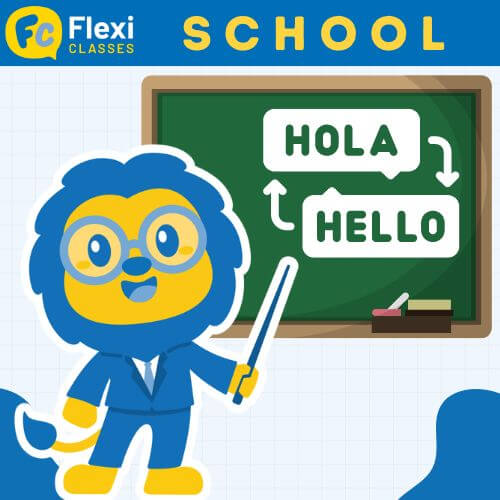
Although they are used interchangeably, there are also distinct differences between the two terms.
💡 Also, compared to the English all-around word ‘school,’ Spanish has a richer vocabulary for the term.
This vocabulary not only changes depending on the stage or type of schooling one is in but can also be specific to the type of classes one is undertaking.
So which is which? Let’s find out!
School in Spanish || Education System in Spain
School in Spanish || University and Beyond
School in Spanish || Your School Extracurriculars
School in Spanish || Quiz
School in Spanish || FAQs
School in Spanish ||
Education System in Spain
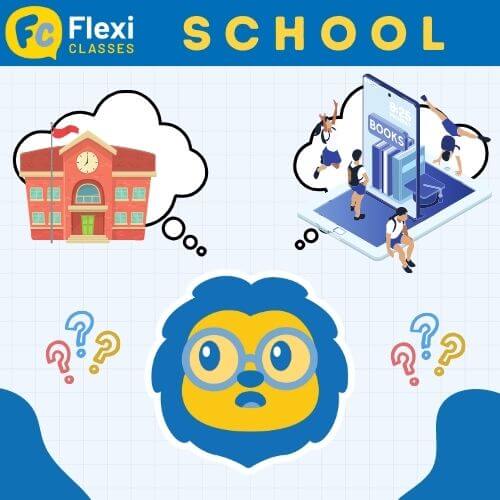
💭 To understand the different terms in Spanish that reference the English word ‘school’, first, we must roughly delineate the Spanish education system.
❓Why – To correctly use the corresponding term in Spanish for ‘school’ that refers to each stage or type of education.
Here are the stages that comprise the basic Spanish education system, as established by the Spanish Ministry of Education, Vocational Training and Sports:
Etapa infantil : Early childhood stage that ranges from 0 to 6 years old, which is non-compulsory.
This specific kind of education is imparted in what is referred to as escuelas infantiles. This term is equivalent to preschool and comprises early nursery schools and later kindergarten.
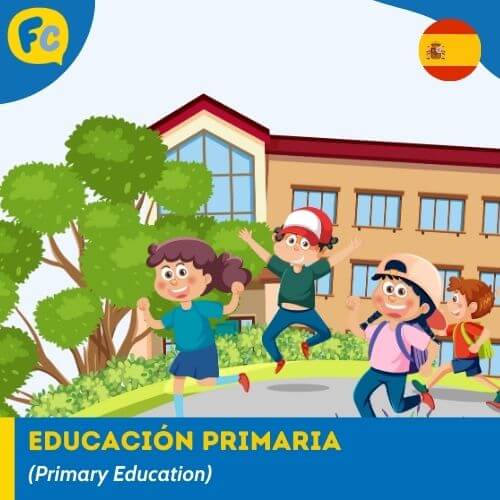
Educación Primaria (Primary Education): ranges from 6 to 12 years old and is compulsory.
This primary education is imparted in schools that are referred to as colegios .
Educación Secundaria Obligatoria or ESO (Compulsory Secondary Education): ranges from 12 to 16 years old and, as its name indicates, is compulsory.
🏫 If the classes are imparted in public schools, they are referred to as institutos or IES. If the classes however are imparted in private schools or in semi-private schools (colegios concertados), then they are referred to as colegios.
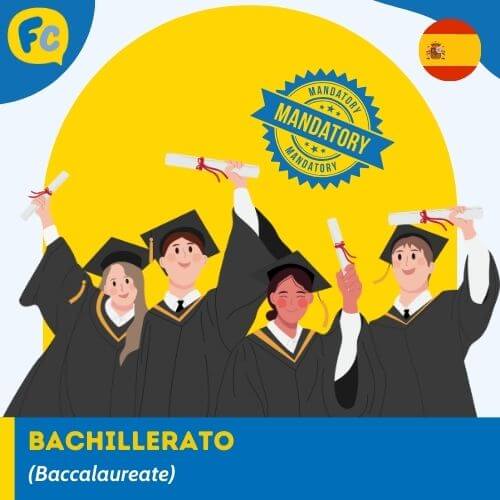
Bachillerato (Baccalaureate), ranges from 16 to 18 years old and is not compulsory.
If classes are imparted in public schools, the center is referenced as instituto or IES.
If imparted in private or semi-private schools, the school is referred to as colegio.
Note that colegio has a general connotation of a private school versus the word instituto which is associated with a public school.
Formación Profesional or FP (Vocational Training): ranges from ages 16 (and exceptionally 15) and above. The specific centers that impart vocational training programs are referred to as institutos, IES or in centros de FP.
The term for school in Spanish will vary depending on the type or stage of schooling you are in.
A quick school recap
Escuela (formally known as Escuelas infantiles) refers to preschools that impart classes at the early stages of childhood. The term escuela is associated with earlier levels of education.
Colegio is generally used to refer to institutions that impart primary education, whether private or public schools.
Colegio is also generally used to refer to institutions that impart secondary and baccalaureate education when referring to a private school or a semi-private school (termed as colegio concertado) that partially receives public funding.
Instituto or IES is generally used to refer to institutions that impart secondary and baccalaureate education when referring to a public school.
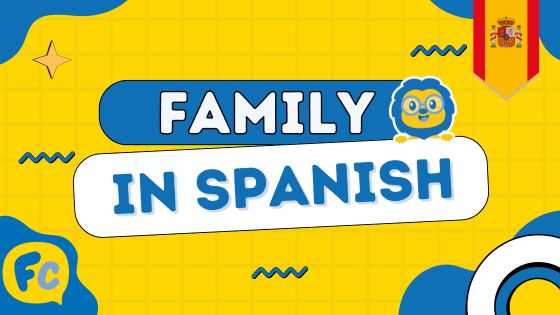
Family in Spanish – Vocabulary, Culture and FREE QUIZ
Family in Spanish 👨👩👧👦 Your Ultimate Vocabulary Guide In Spain as well as in the rest of the Southern European countries (Italy, Greece and Portugal), family ties have always been stronger in comparison with Northern European countries. Comparatively, family in…
School in Spanish || University and Beyond
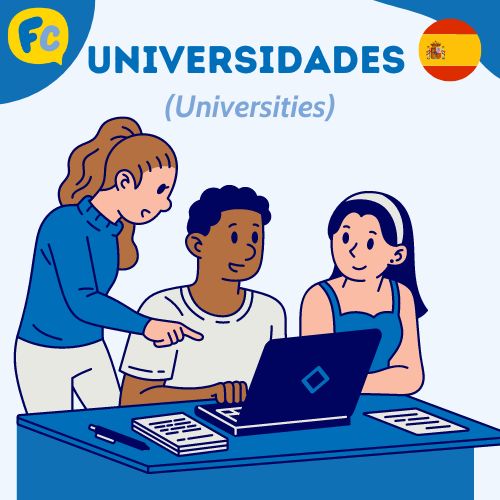
💭 Higher types of education (postgraduate and undergraduate degrees) in Spain are imparted primarily by institutions known as Universidades (Universities).
Universidades (Universities) are the institutions that primarily impart higher education in Spain.
Levels of higher education ( Educación Superior ) in Spain include Grado (Bachelor’s Degree) which normally lasts four years, Máster (Master’s Degree) which normally lasts one to two years and Doctorado (Doctorate) the duration of which can vary.
| Spanish | Level | Duration |
|---|---|---|
| Grado | Bachelor’s Degree | Normally 4 years |
| Máster | Master’s Degree | Normally 1 to 2 years |
| Doctorado | Doctorate | Duration can vary |
Also providing specialized vocational training at a higher level are the advanced vocational centers known as Centros de Formación Profesional Superior .
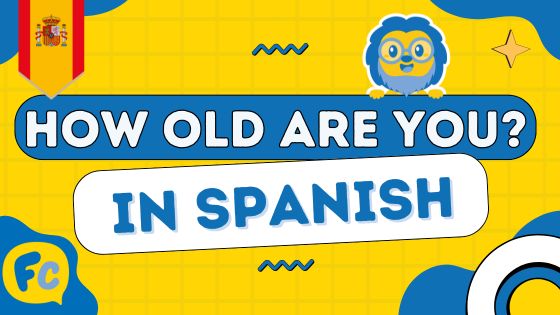
How Old Are You in Spanish – We All Know That Age Is Just a Number!
How Old Are You in SpanishPop the Question on BothInformal and Formal Occasions 🇪🇸 A DISCLAIMER While it may be inherently considered impolite in Spain to inquire about one’s age, always gauge the context, situation, familiarity and relevance when asking…
School in Spanish || Your School Extracurriculars
💭 School in Spanish also has a myriad of terms when referring to centers that impart extracurricular activities.
Let’s have a look.
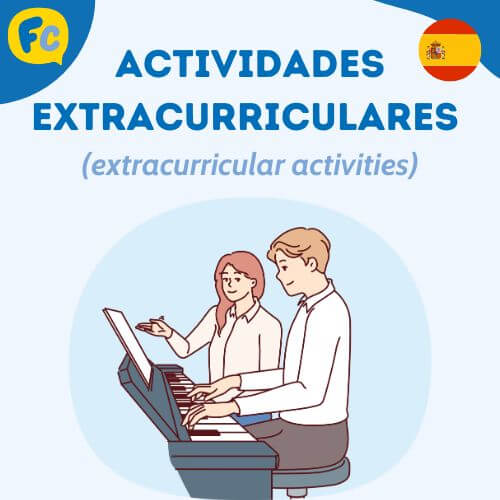
Actividades extracurriculares (extracurricular activities)
🎓 Academias (Academies), also termed Escuelas , as they refer to specialized institutions that impart classes on specific areas or disciplines, like languages, dance, music, math, art, etc.
See some examples of use:
| Spanish | English |
|---|---|
| Escuela de idiomas | Language School |
| Academia de estudios | Study Center |
| Academia militar | Military Academy |
| Escuela de danza | Dance School |
| Escuela de diseño | Design School |
Campamentos de Verano or Escuelas de Verano (Summer Camps or Summer Schools), are basically camps or schools that offer all sorts of recreational and educational activities to keep students occupied during their summer holidays.
Centros Deportivos (Sports Centers), are sports facilities that generally offer a particular or varied sports disciplines, some examples being:
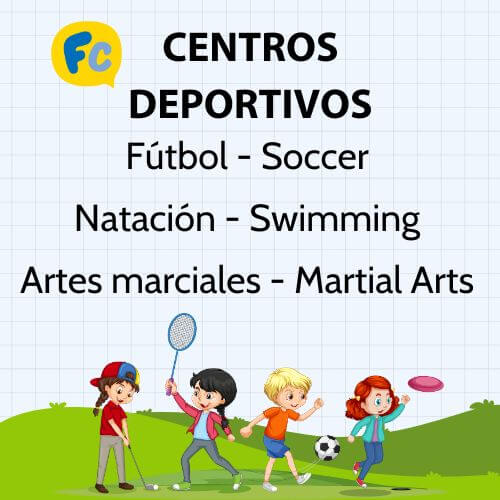
| Spanish | English |
|---|---|
| Fútbol | Soccer |
| Natación | Swimming |
| Artes marciales | Martial Arts |
| Gimnasia | Gymnastics |
| Deportes de raqueta | Racket Sports |
| Atletismo | Track and Field |
Centros Juveniles (Youth Centers), are usually publicly funded community-based centers that generally offer social and educational programs as well as recreational activities.
Many also provide support-type services, such as counseling, guidance and advice on personal, professional and social issues for the youth.
Centros Culturales (Cultural Centers), are institutions or centers that offer and promote cultural and art-related activities, classes and events, some examples of which are:
| Spanish | English |
|---|---|
| Taller de teatro | Theatre Workshop |
| Concierto de música | Music Concert |
| Exposición de arte | Art Exhibit |
| Pase de película | Film Screening |
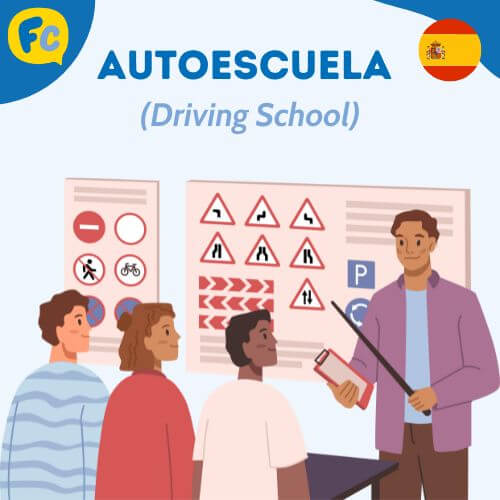
Centros de Formación Profesional No Reglada (Non-Regulated Vocational Training Centers) that offer non-formal training or education programs for technical and/or vocational skills.
Non-formal means it is not part of the official education system.
Here are some examples of these training programs:
| Spanish | English |
|---|---|
| Escuela de cocina | Culinary School |
| Autoescuela | Driving School |
| Centro de Formación en Informática | Computer Training Center |
| Centro de Formación en Salud y Bienestar | Health and Wellness Training Center |
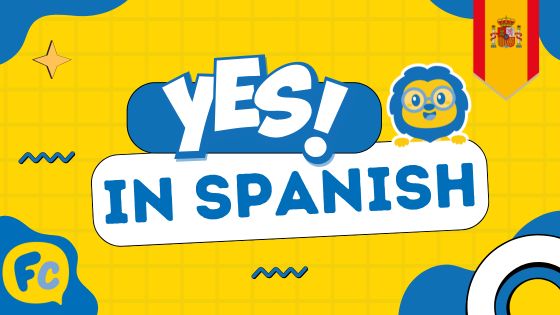
Yes in Spanish – Get Creative With Your Spanish Affirmations ✔️
The Many Ways To Say Yes in Spanish – Formally and Informally ⁉️ Did you know? Yes, is an adverb of affirmation, used to affirm or to agree and normally in answer to a question, affirmatively answering to what has…
USEFUL VOCABULARY
👇 We should have you pretty well covered with the following vocabulary and phrases:
| Spanish | English |
|---|---|
| Escuela | School (often refers to preschool) |
| Colegio | School (commonly refers to primary and private secondary education) |
| Instituto (IES) | Institute (typically refers to public secondary education) |
| Etapa infantil | Early childhood stage (0 to 6 years) |
| Educación Primaria | Primary Education (ages 6 to 12) |
| Educación Secundaria Obligatoria (ESO) | Compulsory Secondary Education (ages 12 to 16) |
| Bachillerato | Baccalaureate (ages 16 to 18, not compulsory) |
| Formación Profesional (FP) | Vocational Training (ages 16 and above) |
| Escuelas infantiles | Preschool (for early childhood education) |
| Colegios concertados | Semi-private schools (partially funded by the government) |
| Actividades extracurriculares | Extracurricular activities |
| Academias | Academies (specialized institutions for specific subjects) |
| Centros Deportivos | Sports Centers (facilities for various sports) |
| Centros Juveniles | Youth Centers (community-based centers for youth programs) |
| Centros Culturales | Cultural Centers (promote cultural activities) |
| Taller de teatro | Theatre workshop |
| Escuela de idiomas | Language school |
| Autoescuela | Driving school |
| Centro de Formación Profesional No Reglada | Non-regulated vocational training centers |
| Educación Superior | Higher Education (postgraduate and undergraduate education) |
👉 BONUS | Interested in other languages too? Why not check out Chinese School Vocabulary and Classroom Phrases in Vietnamese
- Clothing and Accessories in Spanish: Vocab From Head to Toe
- Top 10 Easy Spanish Songs for Learners
- Fruits and Vegetables in Spanish: Essential Vocabulary
- How to Use ‘Y’ in Spanish: Simple Rules & When to Use ‘E’
- How to Ask and Answer ‘How Are You?’ in Spanish: A Simple Guide
School in Spanish || Quiz
🧐 Have you correctly learned the Spanish vocabulary on this page?
Whether you knew some (or all) of them before reading this article, or on the contrary just learnt a bunch of them, take our quick fire quiz to see how well you remember them.
👉Share your results in the comments, and good luck!
School in Spanish || FAQs
Is it escuela or colegio in Spain?
On one hand, the term colegio in Spain is normally used to refer to a private school or a semi-private school that imparts secondary and baccalaureate education. When referring however to the same stages of education but imparted in a public school, in Spain the term generally used is instituto.
In general, the word colegio is formally used as well to refer to institutions that impart primary education (private or public).
On the other hand, the word escuela is used to refer to preschools that impart classes at the early stages of childhood (formally referred to as escuela infantil) and, in general, the term escuela is associated with earlier levels of education.
What is colegios concertados in Spain?
In Spain colegios concertados are semi-private schools, which means they are partially subsidized by the government.
So in part, these semi-private schools receive public funding (which covers a significant chunk of their running expenses) and also charge tuition fees to the parents, which are consequently more affordable than fully private schools.
What is preschool called in Spain?
Preschool in Spain is called escuela infantil. It is the early childhood stage of education that ranges from 0 to 6 years old and is non-compulsory.
This specific kind of education is comprised of two cycles, the first would be the equivalent of nursery school (usually for children of ages 2-4) and the second would be kindergarten proper (normally from ages 5-6).
Is public school free for foreigners in Spain?
Public schools are free in Spain for all to attend, Spanish and foreigners alike, provided that the student and that parents/guardians legally reside in Spain and comply with the necessary standard documentation requirements.
What is Formación Profesional in Spain?
Formación Profesional or FP is the term in Spain for Vocational Training.
Vocational centers in Spain offer students, that range from ages 16 (and exceptionally 15) and above, training programs designed to prepare them for a selection of trades, crafts, professions and careers.
The centers that impart these specific training programs are referred to in Spain as institutos, IES or centros de FP.
Want More From LTL?
FANCY LEARNING SPANISH? Check out our online Spanish courses here.
We offer a 7-day free trial to all online students where you can study Spanish 24/7. It doesn’t end there either.
We teach over 10 of the world’s most popular languages 😎
Come and be a part of our amazing community.










